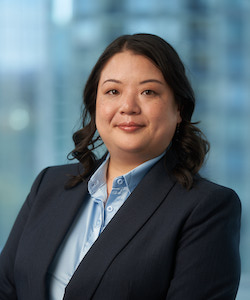When an owner in your community falls behind on dues, it can be hard to know what to do next. Having a step-by-step policy in place, understanding the basic elements of HOA collections, and having attorneys you can trust will help ease anxiety and streamline the process of properly addressing delinquent homeowners in your community. NowackHoward is here to help!
Step 1 – Friendly Reminder
The first communication a delinquent homeowner receives typically should not come from the attorney. Sometimes a homeowner has fallen on hard times; maybe there was an honest mistake and the homeowner truly forgot; perhaps the spouse who traditionally pays dues is no longer in the home. The possibilities are endless, and it is worthwhile to send a friendly reminder of the overdue balance to provide a penalty-free, no-hard-feelings opportunity for the homeowner to address their delinquency.
Step 2 – When to enlist NowackHoward’s help?
If the homeowner does not respond to the friendly reminder by contacting the Board or submitting payment, then it is time to take additional steps. There is not a one-size-fits-all answer to the question of when to enlist NowackHoward’s help; different approaches work for different communities. Some Boards set a debt-amount threshold such as “when the account hits $1000 it is turned over to NowackHoward.” Other HOA Boards set a time-limit standard such as “when the account becomes 3 months’ delinquent it is turned over to NowackHoward.”
Step 3 – What do I do once the account is placed with NowackHoward?
Once the account is turned over to NowackHoward, the homeowner’s access to their online account should be blocked and all communications should go through the attorney. This is to prevent any homeowner confusion and ensure that the homeowner receives the most updated information regarding their balance.
Step 4 – What does NowackHoward do once they receive the account?
NowackHoward will issue a demand letter with the appropriate information about the debt, options for payment, contact information, and proper notice as required by the Fair Debt Collection Practices Act (“FDCPA”), and the Firm will also file a lien or notice of lien, as appropriate, in the Georgia county land records where the property is located. If the homeowner pays the balance within 45 days after the demand letter is mailed out, the debt is resolved, the lien is released, and the file is closed. If the homeowner reaches out to work out a payment plan, NowackHoward will work with the homeowner and the Board to facilitate an agreement. If the homeowner does not pay the amount listed in the demand letter or reach out to NowackHoward to set up a payment plan within 45 days after the demand letter is mailed out, the next step is to file a lawsuit.
Step 5 – What happens during the lawsuit?
Once the lawsuit is filed, the sheriff must serve the lawsuit on the homeowner. Once served, the homeowner has 45 days to either file an answer or work out a settlement. The ultimate goal of litigation is for the court to award the association a judgment for the full balance the homeowner owes. Litigation is a complex process so your NowackHoward attorney is here to walk you through the process and answer any questions that arise.
Step 6 – Now that I have a judgment, how do I collect the money owed?
Once a judgment is awarded, the most common way to collect money is to locate assets and file a garnishment against the homeowner. The most common types of garnishments are bank garnishments and wage garnishments. Another option available to some communities is association foreclosure, which your NowackHoward attorney will guide you through the process required by Georgia law.
Step 7 – What if I have questions; this overview helps but I want more details!
NowackHoward is here for you – we welcome your questions, we offer ongoing education classes and materials, and we look forward to guiding you through the process of legal collections throughout Georgia.


